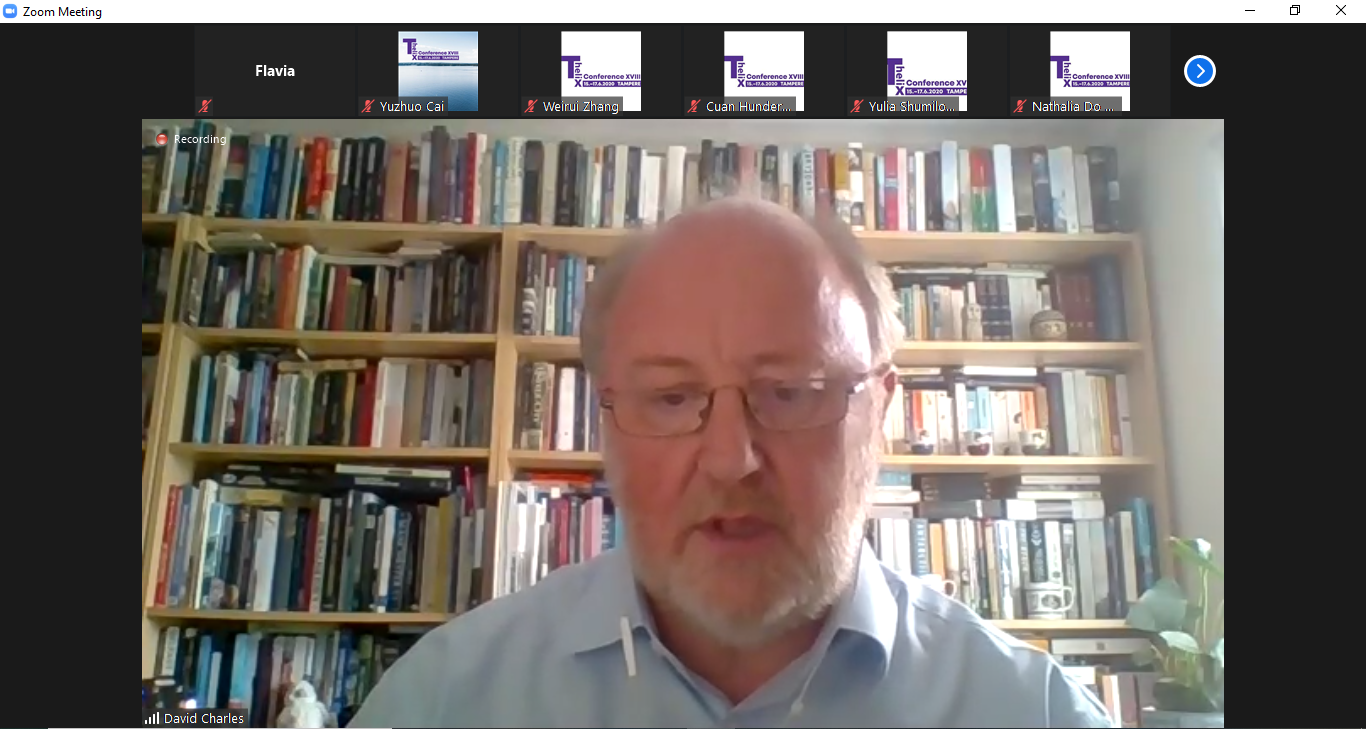The presentation showed some of the origins of the idea of social responsibility in universities, the relationship between theory and practice in universities, and some discussions on how to map and measure engagement, among other topics discussed.
About the origins of social engagement in universities, Professor David showed that this idea is not as recent as it is sometimes assumed, with traces of social responsibility appearing in different contexts including the land grant universities in the United States and the red brick universities in the United Kingdom, both in the 19th century. Additionally, the concept appeared in several more recent publications such as the OECD University and the Community report of 1983.
On how to measure social impact, the professor brought the immense challenges of such measurement, that involve the fact that success in social engagement is not only dependent on what the university does, meaning that the community engagement is a key factor. Additionally, success might mean different things to different stakeholders, and something that the university might consider successful might be described in another way by the community.
He brought some initiatives that attempt to measure social impact in universities such as the Times Higher Education Impact Ranking, launched in 2019. The professor was somewhat critical of the existing initiatives saying that they are still too focused on publication outputs and that there is a need to look more widely into what changes happen in society as a consequence of what the university does. He argues it is not just about the outputs of the university but how the university engages these outputs to become changes in society. The session was short in time, but the discussions were rich and Professor David brought many important topics that will definitely feed reflections in all participants.
Text and photos: Flavia Soares De Oliveira Colus

